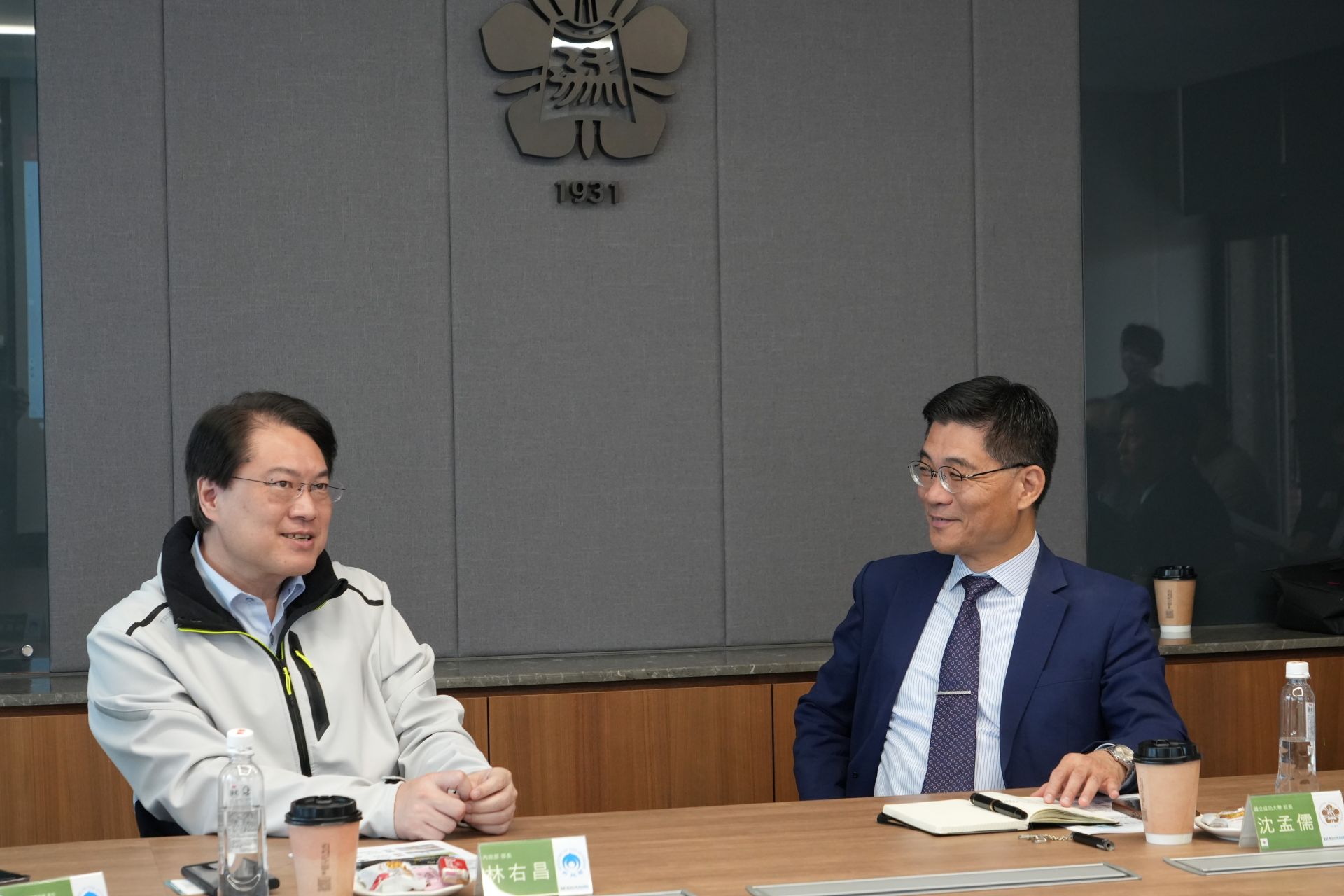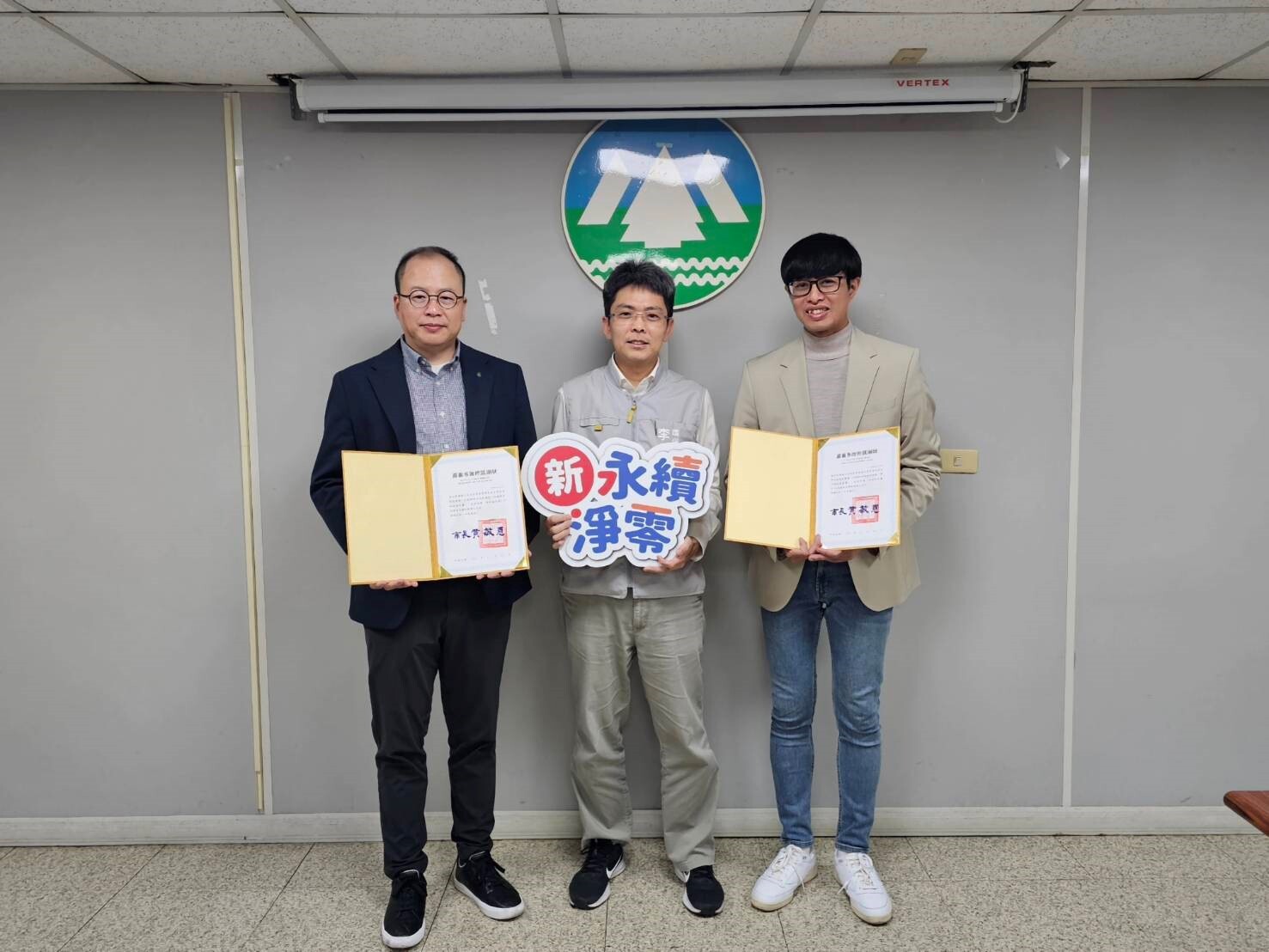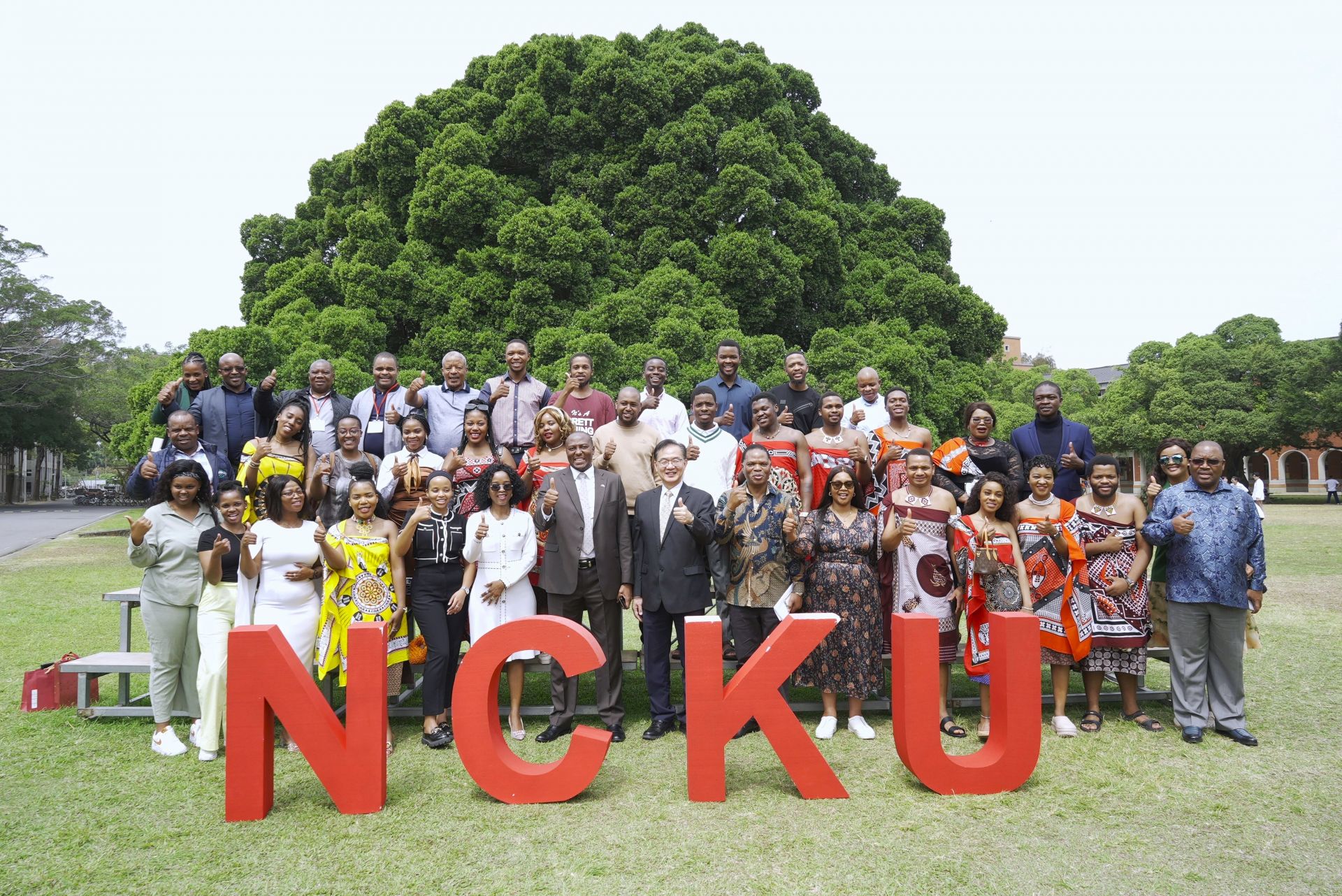Professor Yun-Che Wang explained that the previous phases of the project were primarily led by Professor Tzen-Yuh Chiang from the Department of Life Sciences, focusing on the application of microbial technology to promote sustainable and eco-friendly agriculture. These efforts have already yielded significant results in the collaborative field sites. Building upon this foundation, the current project will continue to foster co-learning and co-creation with partner universities—including National University of Kaohsiung, National United University, National Pingtung University of Science and Technology, National Tsing Hua University, and National University of Tainan—as well as local alliances, with the aim of cultivating industry talent. One notable achievement from the earlier phase was the successful guidance provided to residents of Qingpu Community in Liujia District in cultivating Strobilanthes cusia (used for indigo dyeing), and in establishing the complete production process from leaf harvesting and indigo extraction to fabric dyeing. This phase will further develop a complete industry chain, empowering the community to independently manage everything from cultivation and dyeing to launching experience-based workshops and product sales. This approach enriches the community and strengthens the resilience of the local economy. Ultimately, the goal is for the community not only to master the indigo dyeing craft but also to create a distinctive brand identity and expand into broader markets.
“Sustainable agricultural development hinges on a critical core—understanding and maintaining the health of sloped lands,” said Professor Yun-Che Wang. Having participated in the project for six to seven years, he noted that earlier efforts were constrained by technological limitations, with most engineering research focusing on slope and water resource issues. With recent advancements in information technology, the current phase of the project will integrate artificial intelligence and digital twin technology to establish a disaster prevention platform. This platform will support slope monitoring, early warning, and even post-disaster recovery mechanisms. The team also plans to invite more experts to enhance the depth and practical value of the research. The project will first be implemented at Chuanwenshan as a demonstration site, where multiple sensors—measuring temperature, humidity, rainfall, surface displacement, and vibrations—will be installed to collect real-time environmental data. Using AI-powered digital twin models, the data will be analyzed to assess landslide risks and debris coverage, leading to the development of an early warning system. This will significantly strengthen slope disaster prevention efforts and ensure safer, more stable agricultural development.
Professor Yun-Che Wang pointed out that the USR project, which he has long worked on with Professor Tzen-Yuh Chiang from the Department of Life Sciences and Professor Jyh-Chang Chen from the College of Liberal Arts, benefits from the diverse expertise of each team member. This interdisciplinary collaboration allows students from different academic backgrounds to learn from each other and spark new ideas through practical experience. He jokingly mentioned that students from engineering fields often self-deprecatingly say, "I don't know what I'm fighting for, or who I'm fighting for," as they are typically focused on the precision of engineering and measurements, solely meeting the needs of the client. However, the cross-departmental and cross-domain learning fostered by the NCKU USR project has encouraged participating students to pay more attention to humanities and the environment, enhancing their understanding of society and land. Particularly noteworthy is how this project integrates the "Exploring Tainan" course, offering engineering students a unique opportunity to gain deeper insights into the history and culture of the region. Professor Wang emphasized that building values is not easy, and understanding history and humanities plays a crucial role in forming those values. Through this learning process, students not only acquire technical skills but also develop a sense of care for society, the environment, and history—core principles of the USR initiative.
"Participating in the USR project has been an incredibly moving experience for me, not just because of the many expressions of gratitude from local residents," Professor Yun-Che Wang said with deep emotion. "When I was a student or working on research, I focused only on my field of work, but the gap between that and the real world was enormous. Now, when I take students to explore the Wushantou Reservoir, I realize that from the conceptualization and planning stages to construction and implementation, and even today, we must still pay attention to the stability of the reservoir. This realization has been especially profound." Professor Wang also pointed out that earthquakes will still occur, and earlier construction methods are not as advanced as those used today. Earthfill dams are particularly vulnerable to leakage, and the flow of water can erode the structure, leading to collapse. These issues have deeply impressed upon him the importance of engineering work—it's truly built brick by brick, with no room for negligence. While nature's help is limited, everything must rely on human effort. From selecting materials to ensuring construction quality and adhering to regulations, every step must be executed flawlessly. This is not just a technical issue; it is a commitment to responsibility and attention to detail.
Professor Yun-Che Wang deeply values the opportunity to lead students in the USR project. Beyond helping students apply what they have learned in practice, he also sees it as a way to transform knowledge into contributions to society and the environment. He candidly acknowledged that the process of implementation is often fraught with setbacks, but the key lies in mutual support and trust. By building relationships with mentors and peers, students are able to resonate together, inspire each other, and keep moving forward with determination.
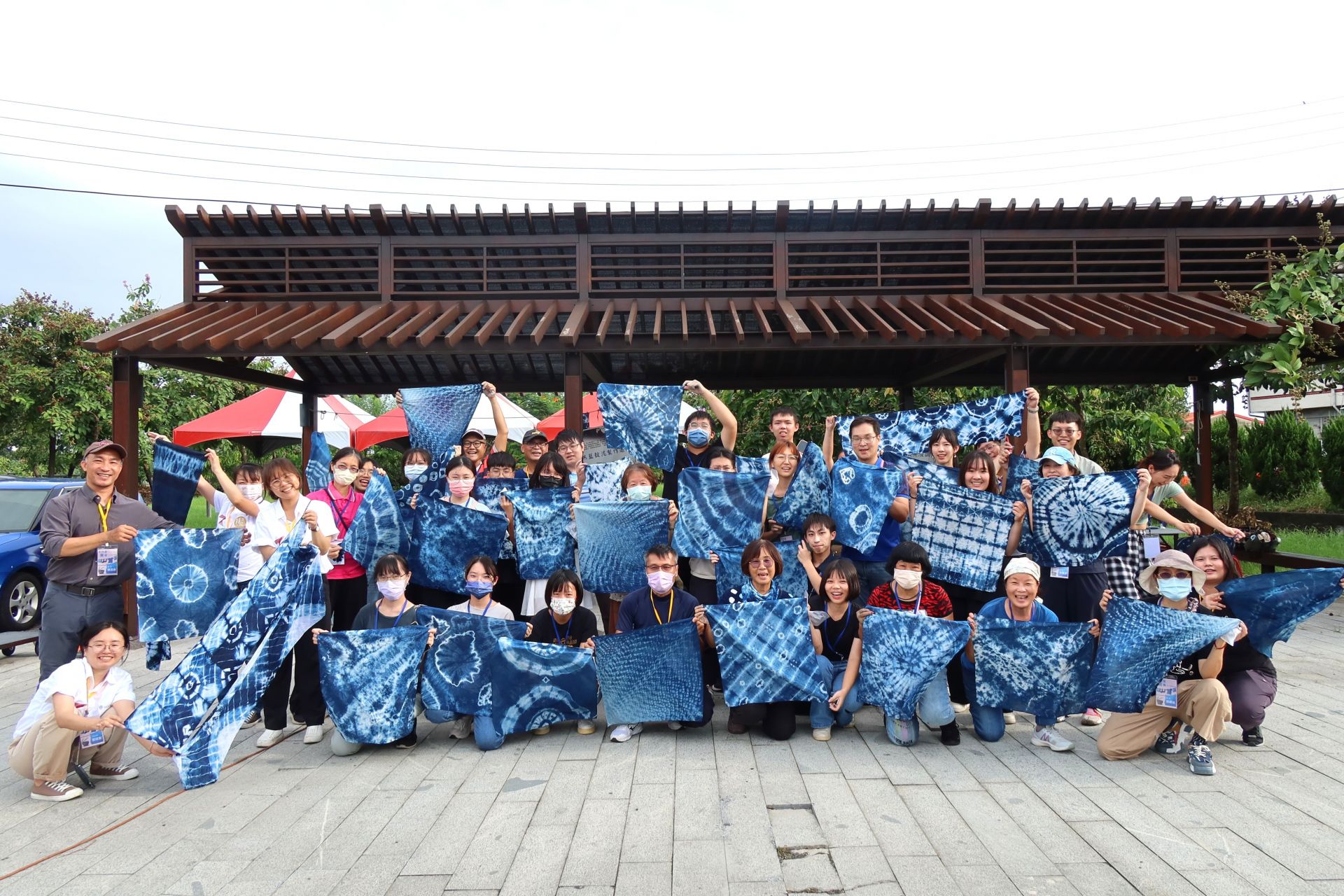
Participants of the indigo dyeing workshop in Jingtong Community pose for a group photo showcasing the achievements of the previous phase of the project. The current phase aims to further establish a comprehensive local industry chain, enabling the community to independently manage everything from raw material cultivation and dyeing processing to experiential courses and product sales, thereby promoting sustainable local development.
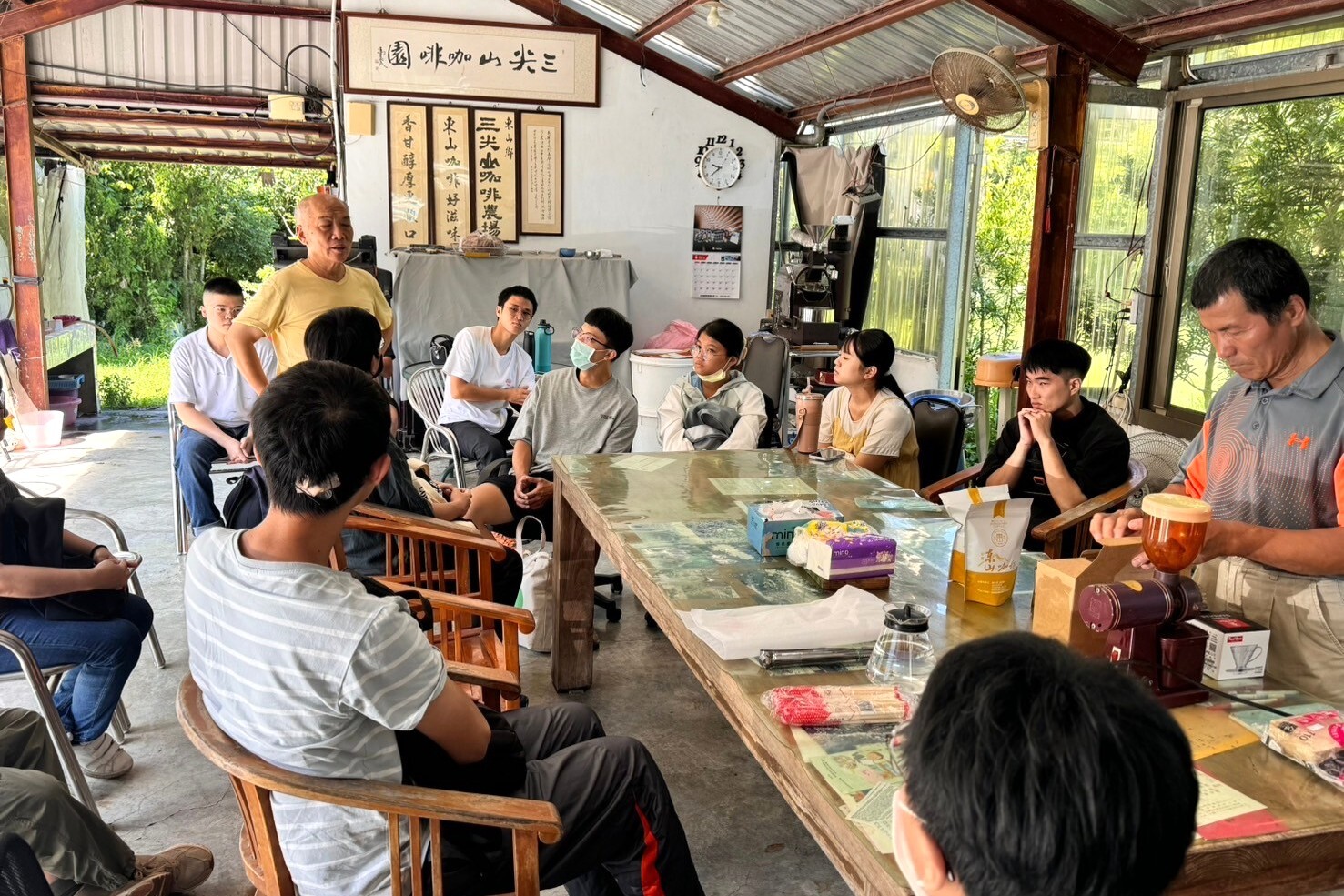
Documentation of the previous phase – Dongshan Coffee Experience Course, where participants were guided to gain in-depth understanding of local coffee and its production process.
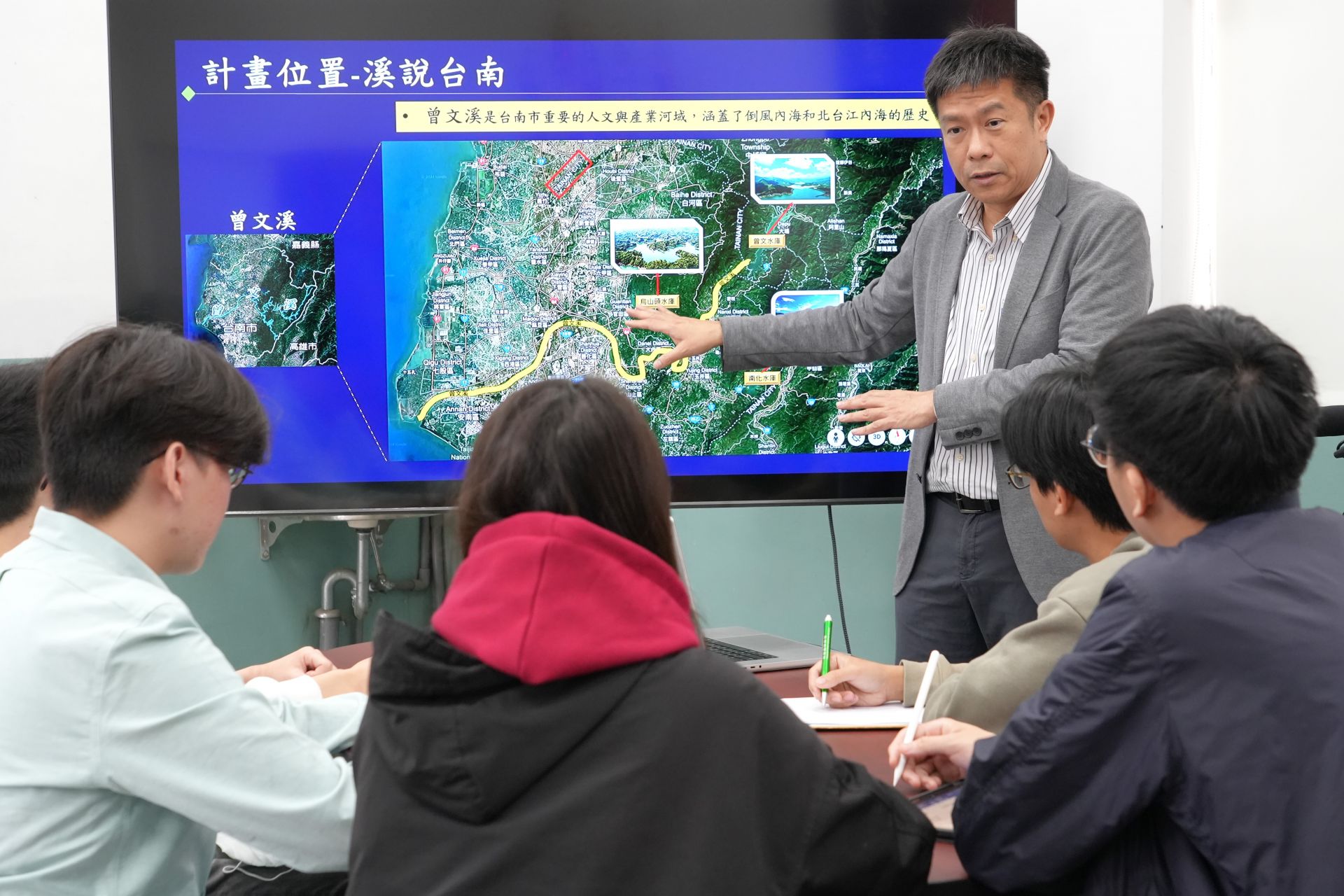
Professor Yun-Che Wang emphasized that the key to sustainable agricultural development lies in maintaining the health of sloped lands. During the class, he guided students to gain an in-depth understanding of the distribution and characteristics of the Zengwen River Basin.
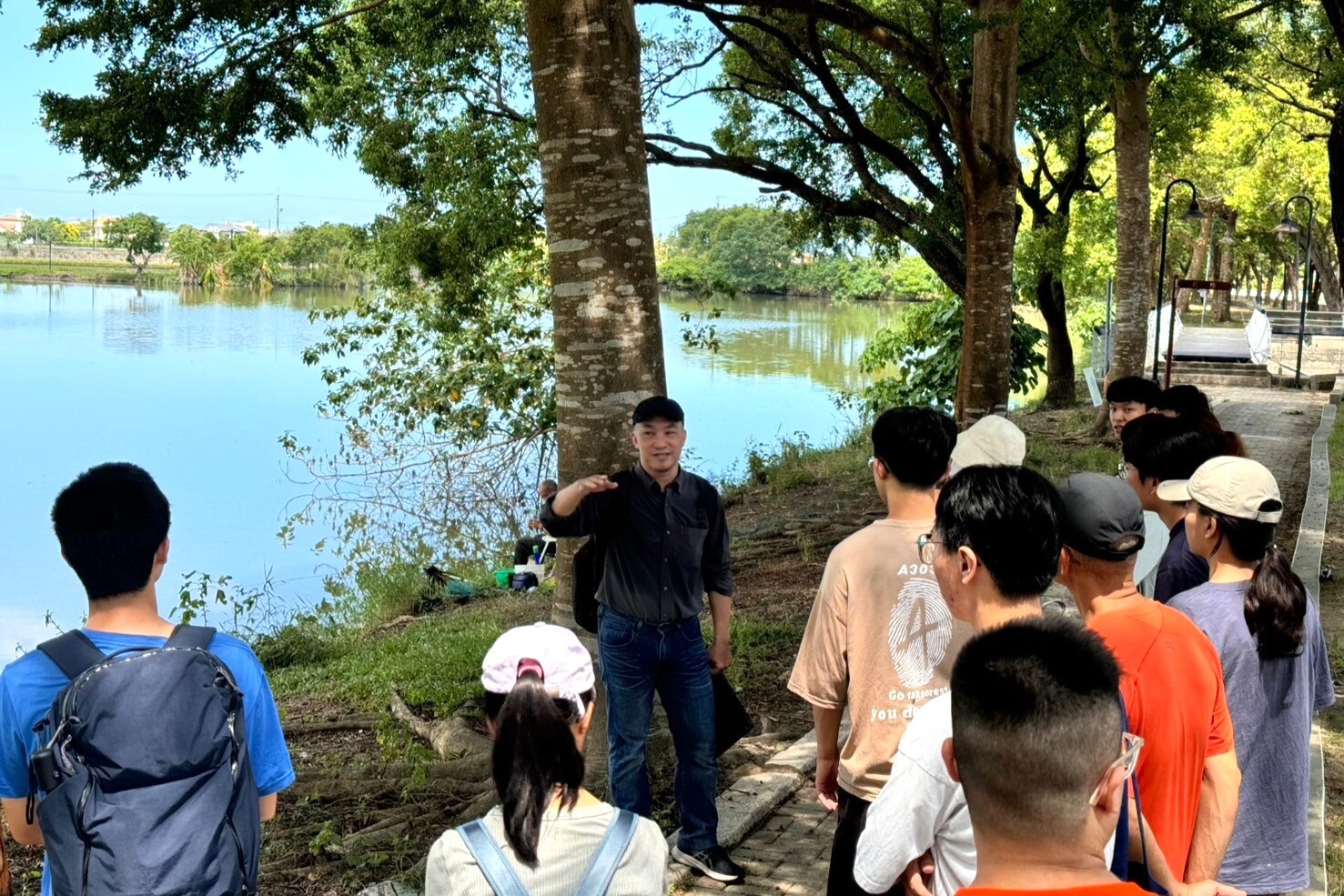
Hands-on practice and learning during the "Natural Farming and Organic Farming" course.






